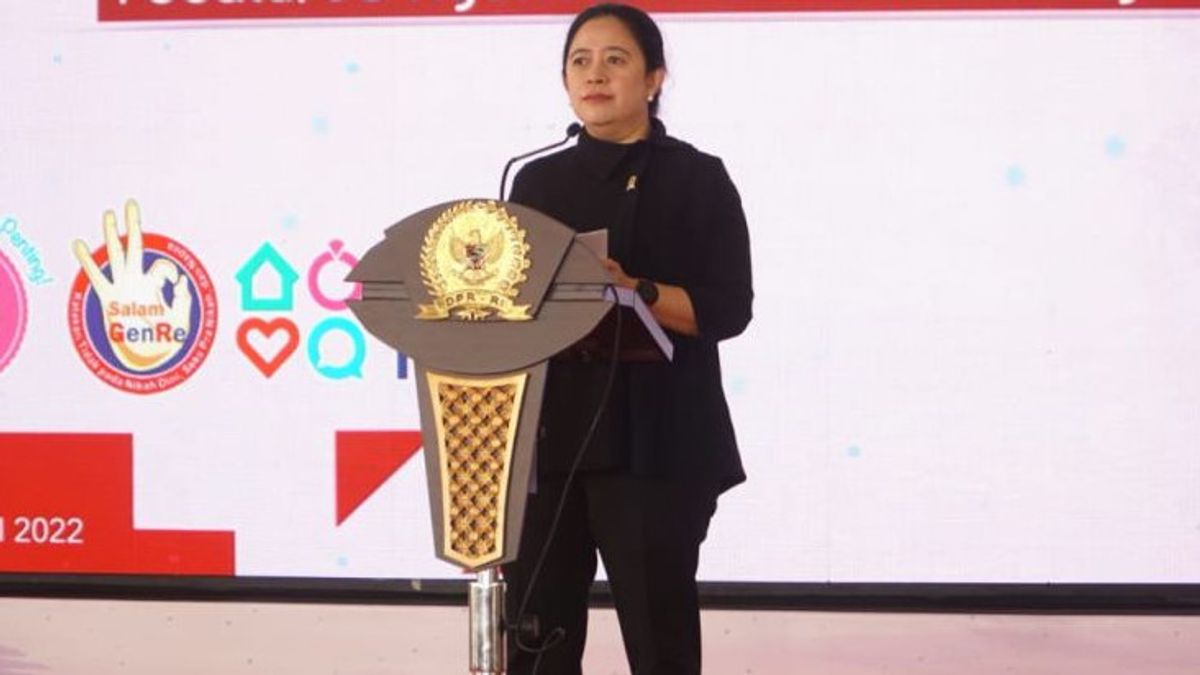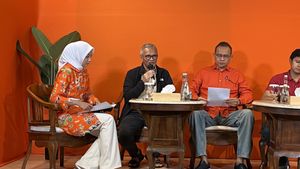JAKARTA - The KedaiKOPI survey institute released a survey of 'Public Opinion on Women'. The results found that public acceptance of female presidents increased from 34.2 percent in November 2021 to 55.5 percent in August 2022.
However, women's presidential acceptance is still lower than public acceptance of female legislative members with 76 percent, women's regents/mayors 70.8 percent, women's governor 68 percent, and women's vice president 64.7 percent.
"When asked about the main problems faced by the Indonesian people, 62.4 percent of respondents believe that the female president is able to overcome these problems," said Executive Director of the KedaiKOPI Survey Institute Kunto Adi Wibowo during the MNC Trijaya Polemic discussion, September 3.
Kunto said this finding indicates that women are perceived as having the ability to overcome problems that are one of the important qualities as leaders of a country. In addition, this survey also asked about the quality of character owned by female national leaders in the world, where according to UN Women it is more successful in dealing with COVID-19.Respondents contributed 8.5 percent competence, 7.5 percent thorough, and 7.2 percent persistent or late as a quality owned by women leaders in leading their country out of the COVID-19 crisis.
"From these findings, the public believes that the quality of leadership with feminine traits such as thorough, patient, and tenacity is seen as capable of overcoming concrete problems such as COVID-19," said Kunto. When compared to their answers, those who agree on the leadership of women's president, added Kunto, the prominent character is firm and authoritative 25.3 percent, pro-people policy 20.5 percent, and 17.6 percent wisely.
"On the other hand, when asked about abstract leadership, the public refers to masculine traits as firm or wise," said Kunto.
Meanwhile, Generation Z groups with a age range of 17-24 years agree that women's presidents are 62.3 percent compared to millennial generation groups with 53.5 percent. Ministry of Education, Generation X 53.7 percent, and Generation boomers 53.7 percent.
"We found that the younger generation turned out to be more open to the idea of women's leadership than those who were older," said Kunto. The KedaiKOPI survey was held on August 3-18, 2022, in 34 provinces in Indonesia. A total of 1197 respondents were randomly selected using the multistage random sampling method with a margin of error of ±2.89 percent at a 95 percent confidence level. The interview was conducted face-to-face using Computer Assisted Personal Interviewing (CAPI).
The English, Chinese, Japanese, Arabic, and French versions are automatically generated by the AI. So there may still be inaccuracies in translating, please always see Indonesian as our main language. (system supported by DigitalSiber.id)













